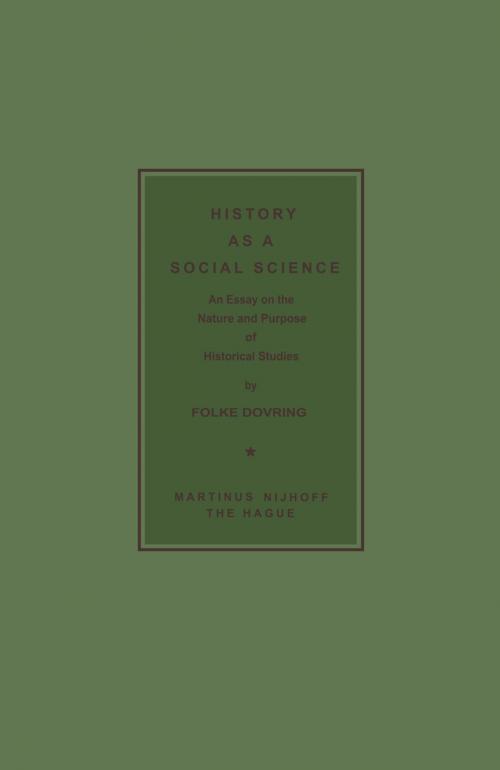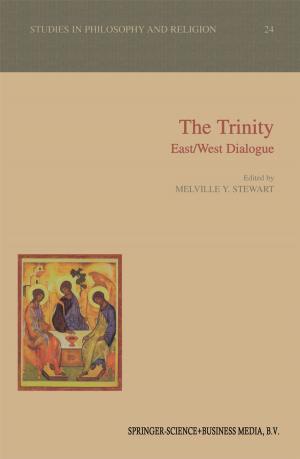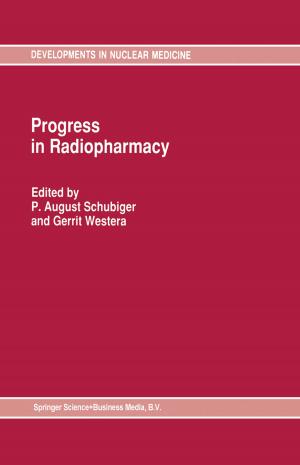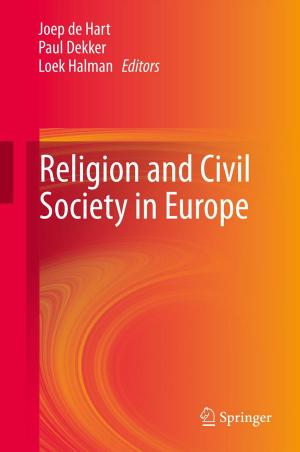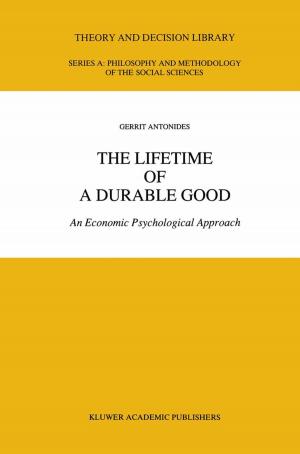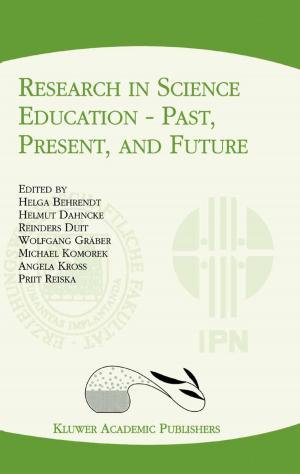History as a Social Science
An Essay on the Nature and Purpose of Historical Studies
Nonfiction, History| Author: | F. Dovring | ISBN: | 9789401164252 |
| Publisher: | Springer Netherlands | Publication: | December 6, 2012 |
| Imprint: | Springer | Language: | English |
| Author: | F. Dovring |
| ISBN: | 9789401164252 |
| Publisher: | Springer Netherlands |
| Publication: | December 6, 2012 |
| Imprint: | Springer |
| Language: | English |
This essay has grown out of an attempt to find the answers to problems basically inherent in the making of historical re search. Widespread among humanists is a vagueness of con cepts which many times makes it difficult or impossible to translate our way of thinking into the terms of natural science or vice versa. It sounds, sometimes, as if humanistic studies were a world of its own, rather than a part of the natural world we all1ive in. How long can we go on believing that there are different kinds of knowledge ~ To this conflict of theory, another is added: a feeling of urgency about cultural problems that are too often left to the future to solve. History is not, as some natural scientists tend to believe, a matter of no practical consequence. It is a virulent factor in political and social conflicts and a basic substance in the structure of our personalities. The present dynamic epoch raises with particular stress the problem of understanding the conditioning influence which the past exercises upon the present in each particular community. Such a substance is neither a toy for pastime hobbies nor an innocent weapon in the hands of dictators. Which is, then, the responsibility of the historian, both for what he does and for what he abstains from doing ~ The necessity to stay independent in order to approach objectivity makes for no easy answer.
This essay has grown out of an attempt to find the answers to problems basically inherent in the making of historical re search. Widespread among humanists is a vagueness of con cepts which many times makes it difficult or impossible to translate our way of thinking into the terms of natural science or vice versa. It sounds, sometimes, as if humanistic studies were a world of its own, rather than a part of the natural world we all1ive in. How long can we go on believing that there are different kinds of knowledge ~ To this conflict of theory, another is added: a feeling of urgency about cultural problems that are too often left to the future to solve. History is not, as some natural scientists tend to believe, a matter of no practical consequence. It is a virulent factor in political and social conflicts and a basic substance in the structure of our personalities. The present dynamic epoch raises with particular stress the problem of understanding the conditioning influence which the past exercises upon the present in each particular community. Such a substance is neither a toy for pastime hobbies nor an innocent weapon in the hands of dictators. Which is, then, the responsibility of the historian, both for what he does and for what he abstains from doing ~ The necessity to stay independent in order to approach objectivity makes for no easy answer.
